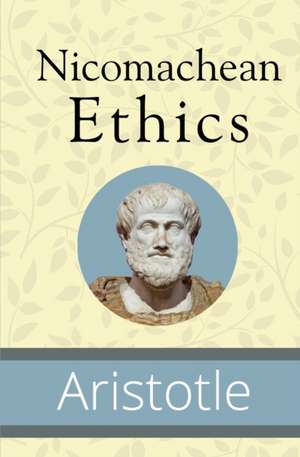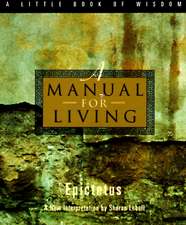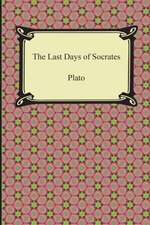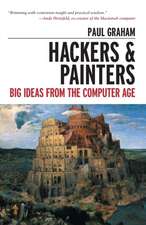Nicomachean Ethics
Autor Aristotle Traducere de D. P. Chaseen Limba Engleză Paperback – 5 noi 2019
| Toate formatele și edițiile | Preț | Express |
|---|---|---|
| Paperback (6) | 43.62 lei 10-16 zile | +17.08 lei 4-10 zile |
| Oxford University Press – 11 iun 2009 | 43.62 lei 10-16 zile | +17.08 lei 4-10 zile |
| Hackett Publishing Company – 14 sep 2019 | 127.22 lei 3-5 săpt. | +33.59 lei 4-10 zile |
| Les prairies numériques – 19 iul 2019 | 128.63 lei 3-5 săpt. | |
| 12th Media Services – 10 oct 2017 | 63.96 lei 6-8 săpt. | |
| Touchladybirdlucky Studios – 5 noi 2019 | 89.74 lei 6-8 săpt. | |
| Martino Fine Books – 9 noi 2016 | 157.14 lei 38-44 zile | |
| Hardback (2) | 122.12 lei 6-8 săpt. | |
| 12th Media Services – 10 oct 2017 | 122.12 lei 6-8 săpt. | |
| A & D Publishing – 3 apr 2018 | 178.05 lei 6-8 săpt. |
Preț: 89.74 lei
Nou
Puncte Express: 135
Preț estimativ în valută:
17.17€ • 17.88$ • 14.51£
17.17€ • 17.88$ • 14.51£
Carte tipărită la comandă
Livrare economică 10-24 martie
Preluare comenzi: 021 569.72.76
Specificații
ISBN-13: 9781951570279
ISBN-10: 1951570278
Pagini: 268
Dimensiuni: 133 x 203 x 15 mm
Greutate: 0.31 kg
Editura: Touchladybirdlucky Studios
ISBN-10: 1951570278
Pagini: 268
Dimensiuni: 133 x 203 x 15 mm
Greutate: 0.31 kg
Editura: Touchladybirdlucky Studios
Descriere
Descriere de la o altă ediție sau format:
'Happiness, then, is the best, noblest, and most pleasant thing in the world.'In the Nicomachean Ethics Aristotle's guiding question is: what is the best thing for a human being? His answer is happiness, but he means, not something we feel, but rather a specially good kind of life. Happiness is made up of activities in which we use the best human capacities, both ones that contribute to our flourishing as members of a community, and ones that allow us to engage in god-like contemplation. Contemporary ethical writings on the role and importance of the moral virtues such as courage and justice have drawn inspiration from this work, which also contains important discussions on responsibility for actions, on the nature of practical reasoning, and on friendship and its role in the best life. This new edition retains and lightly revises David Ross's justly admired translation. It also includes a valuable introduction to this seminal work, and notes designed to elucidate Aristotle's arguments. ABOUT THE SERIES: For over 100 years Oxford World's Classics has made available the widest range of literature from around the globe. Each affordable volume reflects Oxford's commitment to scholarship, providing the most accurate text plus a wealth of other valuable features, including expert introductions by leading authorities, helpful notes to clarify the text, up-to-date bibliographies for further study, and much more.
'Happiness, then, is the best, noblest, and most pleasant thing in the world.'In the Nicomachean Ethics Aristotle's guiding question is: what is the best thing for a human being? His answer is happiness, but he means, not something we feel, but rather a specially good kind of life. Happiness is made up of activities in which we use the best human capacities, both ones that contribute to our flourishing as members of a community, and ones that allow us to engage in god-like contemplation. Contemporary ethical writings on the role and importance of the moral virtues such as courage and justice have drawn inspiration from this work, which also contains important discussions on responsibility for actions, on the nature of practical reasoning, and on friendship and its role in the best life. This new edition retains and lightly revises David Ross's justly admired translation. It also includes a valuable introduction to this seminal work, and notes designed to elucidate Aristotle's arguments. ABOUT THE SERIES: For over 100 years Oxford World's Classics has made available the widest range of literature from around the globe. Each affordable volume reflects Oxford's commitment to scholarship, providing the most accurate text plus a wealth of other valuable features, including expert introductions by leading authorities, helpful notes to clarify the text, up-to-date bibliographies for further study, and much more.
Notă biografică
Aristotle (384-322 BC) was a Greek philosopher during the Classical period in Ancient Greece, the founder of the Lyceum and the Peripatetic school of philosophy and Aristotelian tradition. Along with his teacher Plato, he has been called the Father of Western Philosophy. His writings cover many subjects - including physics, biology, zoology, metaphysics, logic, ethics, aesthetics, poetry, theatre, music, rhetoric, psychology, linguistics, economics, politics and government. Aristotle provided a complex synthesis of the various philosophies existing prior to him, and it was above all from his teachings that the West inherited its intellectual lexicon, as well as problems and methods of inquiry. As a result, his philosophy has exerted a unique influence on almost every form of knowledge in the West and it continues to be a subject of contemporary philosophical discussion. Little is known about his life. Aristotle was born in the city of Stagira in Northern Greece. His father, Nicomachus, died when Aristotle was a child, and he was brought up by a guardian. At seventeen or eighteen years of age, he joined Plato's Academy in Athens and remained there until the age of thirty-seven (c. 347 BC). Shortly after Plato died, Aristotle left Athens and, at the request of Philip II of Macedon, tutored Alexander the Great beginning in 343 BC. He established a library in the Lyceum which helped him to produce many of his hundreds of books on papyrus scrolls. Though Aristotle wrote many elegant treatises and dialogues for publication, only around a third of his original output has survived, none of it intended for publication.
























